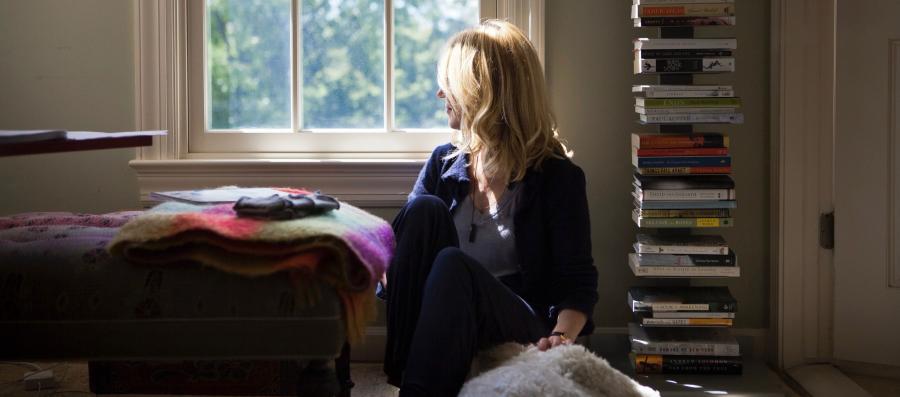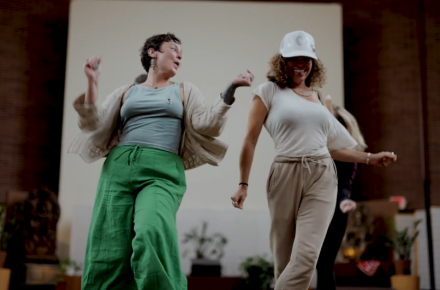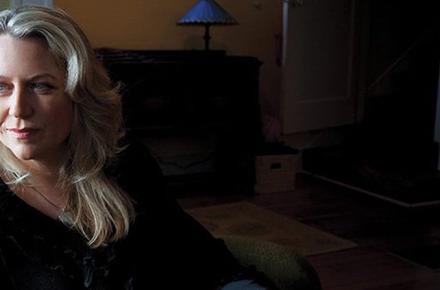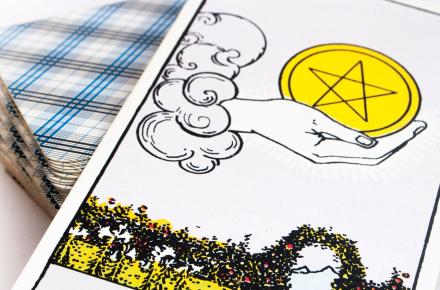Dani Shapiro on The Stories We Carry: Inside Her Kripalu Writing Retreat

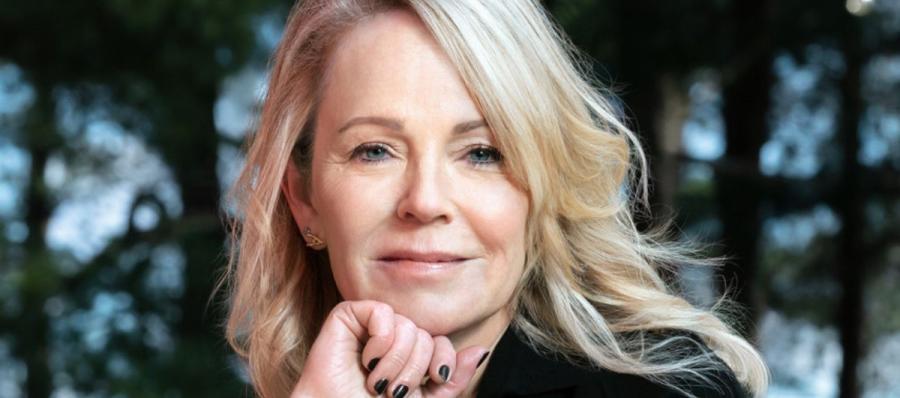
Each year, bestselling author Dani Shapiro returns to Kripalu to lead The Stories We Carry, a weekend retreat for writers and seekers of all levels. The program invites participants to pause, listen inwardly, and discover what exists beneath the surface of their daily lives.
When I sat down with Dani to talk about her annual retreat at Kripalu, I expected to hear about writing prompts and practice. What I didn’t expect was how deeply our conversation would circle the themes of safety, risk, and belonging. At The Stories We Carry, she creates space not just for writing, but for opening—an experience that begins with a single word.
On the first night of her annual retreat, Dani asks each participant to offer one word: what they are carrying with them into the weekend. The words spill out like stones laid in a circle—anxiety, excitement, longing, resistance. “These are the stories we carry,” she tells me. “Whether we want to publish them, or whether we are simply trying to understand what they are, they are always with us.”
Dani has led The Stories We Carry for years, but the ritual remains the same. Kripalu, she says, is singular in its ability to hold the full spectrum of what happens.
“There are many things I love about teaching at Kripalu, but one of them is that Kripalu supports the work I’m doing so that there’s a safe zone in which to be cracked wide open and know that you’re going to be held. That you are safe.”
The Architecture of a Weekend
What follows across three days is equal parts daring and gentle. People gather, in person and online. They write, quickly, following prompts. And the large group breaks into small groups. Four strangers, reading aloud words just written.
“The groups get very specific instructions about how to listen to each other’s work. It’s not critiquing. It’s not opining,” Shapiro explains. “This isn’t even bread fresh out of the oven—it’s dough, it’s a cup of flour.”
She and the program assistants circle the room, holding the space. From where she stands, people lean toward one another, voices soften, laughter rises, sometimes tears flow.
“It reaffirms my faith in humanity,” she says. “We’ve grown used to isolation, to connecting in polarity. But in that room, I see how quickly trust forms. People are so hungry to connect.”
And the bonds don’t dissolve when the weekend ends. Participants often stay in touch for years—sometimes even becoming writers who go on to publish books. That’s not the goal, she insists, but it is one of the many fruits of the work.
Writing Toward What's True
For Shapiro, the retreat is less about producing polished writing than about creating conditions where truth can surface. “The sentence you most want to delete is usually the one that contains the gold,” she says.
She offers her own story: in Hourglass, a memoir about marriage and time, she drafted a scene of escaping her house during an ice storm with her husband at the wheel, exploring the damage while she, her young son and puppy were in the car. At the end she wrote: I hated him. Then deleted it. Wrote it again. Deleted it. Finally, she left it. When the manuscript was finished, her editor told her it was her favorite line in the book.
“That’s what I try to teach,” she says. “The truth lives in the place we resist most.”
That’s the paradox of writing, she says: the deeply personal often becomes the most universal. “By drilling down into the particulars of our truth, we get to something that belongs to everyone.”
Stepping Into the Circle
I ask her what she would tell someone who has been circling the retreat for years, hesitant to commit. I remember my own first time at Kripalu—how awkward it felt, the dining hall like a middle school cafeteria, the sense of being out of place.
“I tell people: jump in, the water’s warm,” she says. “We regret what we don’t do, not what we do.”
For many, the retreat becomes a threshold, an entry into a new way of seeing. Sometimes the shift is in the writing itself, sometimes in a new connection, sometimes in the recognition of an inner voice that had been drowned out by the noise of daily life.
“The prompts I give are approachable in the best way,” Shapiro says. “What matters is not getting it right, but exploring, playing, beginning to remember.”
What We Carry Forward
When the retreat ends, participants leave with more than pages in a notebook. They leave with a sense of permission—to risk what feels unsayable, to listen more closely, to trust the story inside them.
“In our digital, noisy world, we rarely have the chance to pause,” Shapiro says. “But when we do, when we find ourselves in that quiet, we discover what’s really there. We discover the stories we’ve been carrying all along.”





